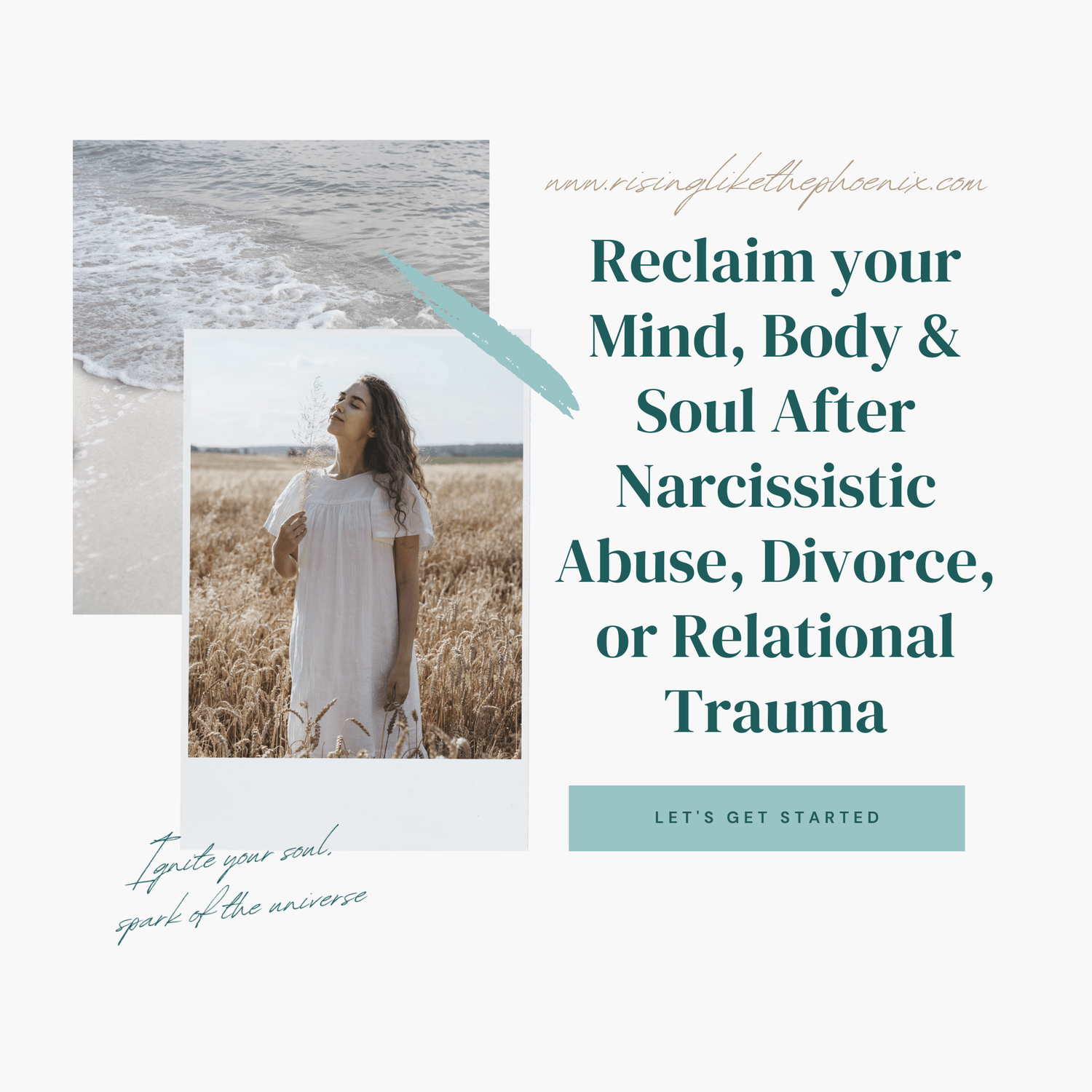How to Disarm a Narcissist: Standing Up Without Losing Your Peace
The Power of Calm in the Eye of the Storm
If you’ve survived a relationship with a narcissist, even the thought of confrontation can feel like turbulence before takeoff. You’ve probably spent months or years walking on eggshells, predicting the next outburst, and learning to read every shift in their mood. But healing now asks something different of you. It invites you to rise above the chaos and respond from a place of strength, not fear.
Confrontation doesn’t have to mean conflict. It can look like speaking your truth with grace, maintaining composure when they try to provoke you, and walking away when peace is no longer possible. In short, you can disarm the narcissist without losing your center.
Understand What You’re Dealing With
Before engaging in any conversation, remind yourself of this crucial fact: you are not dealing with someone who values honesty or connection the way you do. You are dealing with someone who feeds off power and control. A narcissist’s greatest fear is appearing weak or being exposed. Their self-image depends on maintaining superiority, so when you confront them, you’re threatening their false reality. Expect pushback, gaslighting, denial, blame-shifting, or even rage.
Redefine What “Confrontation” Means
Healthy confrontation isn’t about shouting or proving your point. It’s about clarity. Speak calmly, use ‘I’ statements, and stand firm without defensiveness. Examples: ‘I’m not comfortable being spoken to that way,’ or ‘If you raise your voice, I’m going to step away.’
Stay Grounded and Neutral
Think of a narcissist like a storm. They generate drama to pull you into their emotional weather system. Your job is to stay on the ground, steady and unmoved. Breathe deeply, keep your voice level, and use short sentences. Your calm becomes their kryptonite.
Recognize Their Favorite Deflection Tactics
Expect gaslighting, projection, and blame-shifting. Recognizing their tactics is the first step in detaching emotionally. Try phrases like: ‘I see this conversation isn’t going anywhere productive right now.’ or ‘We’ll talk when you’re ready to have a respectful discussion.’
Use the Grey Rock Technique
This method helps you disengage emotionally. Be as boring and neutral as possible, like a grey rock. Avoid emotional reactions and limit responses to brief, calm statements such as, ‘I’m sorry you feel that way.’

Protect Your Energy Before and After the Encounter
Whether you’re preparing for a conversation with a narcissist or recovering from one, energetic hygiene is just as important as emotional awareness. These interactions can leave you feeling emotionally bruised, even when you’ve done everything “right.” That’s because narcissists don’t just test your patience; they drain your life force if you let them. Protecting your energy before, during, and after a confrontation helps you walk away intact.
5 Steps to Reclaim Your Life
A practical guide to reclaiming your confidence, setting boundaries, and moving forward—without second-guessing yourself.
Before the Encounter: Grounding and Shielding
Just as flight attendants prepare for turbulence by securing themselves first, you must center yourself before engaging. Begin by grounding your body , feel your feet on the floor, your breath steady, your heart anchored in calm. Visualize a soft, protective light around you. Many survivors describe this light as golden or white , a gentle but impenetrable barrier between your peace and their chaos.
Some find comfort in physical tools of protection. For instance, Black Onyx, long regarded as a stone of strength and emotional resilience, is said to absorb negative energy and prevent emotional drain. I’ve personally slipped a small piece into my pocket before seeing my mother, a subtle, tactile reminder that I was safe, steady, and sovereign. Whether you believe in crystals metaphysically or simply appreciate the grounding symbolism, the ritual itself can be powerful.
If you’re open to energetic remedies, Bach Flower Therapy’s Rescue Remedy can be another valuable ally. It’s a gentle, flower-based blend designed to restore emotional balance in times of stress. A quick spritz on your wrist or under your tongue before walking into a difficult interaction can help you stay calm, focused, and clear-headed. It’s not magic, it’s mindfulness in liquid form, helping you reconnect to your own center when your nervous system starts to buzz.
Here are a few other practical ways to prepare your emotional space:
Set an intention before you meet. Try, “I remain calm, detached, and protected.”
Wear grounding colors (black, grey, or deep green). These subtly reinforce stability.
Carry a tactile anchor. A smooth stone, a pendant, or even a small token you associate with safety can help you return to calm when the narcissist tries to rattle you.
Limit caffeine or sugar before an encounter; they can spike your anxiety response.
Your preparation doesn’t mean you expect chaos; it means you’ve decided to stay peaceful no matter what comes.

After the Encounter: Clearing and Restoring Your Peace
Even when you stay calm, it’s common to feel “off” afterward, feeling drained, shaky, or foggy. That’s because you’ve just been exposed to emotional turbulence. The nervous system may need time to recalibrate. Here’s how to gently bring yourself back to center.
1. Physical Release
Release the energy from your body. Take a brisk walk, stretch, dance in your kitchen, or even shake your hands out as if flinging off static. This tells your body the threat has passed and you are safe again.
2. Emotional Release
Don’t rush to “feel better.” Let your feelings surface without judgment. Cry, write, pray, or speak aloud to a trusted friend or therapist. Journaling after a confrontation is particularly effective. Try writing what you wish you had said, not to send, but to release.
3. Energetic Cleanse
If you’ve ever walked away from a narcissist and felt heavy or uneasy, you may benefit from a brief cleansing ritual. A warm shower can work wonders. Imagine the water washing away their words, their energy, their control. For an added layer of healing, a few drops of lavender or eucalyptus oil can help calm the mind and restore clarity.
If you resonate with energy work, you can also try:
Smudging with sage or palo santo (if that aligns with your beliefs).
Using sound therapy, a singing bowl, or even soft instrumental music to reset your vibration.
Meditation or guided visualization, picture yourself surrounded by light again, safe in your emotional cocoon.
4. Rescue and Reconnect
This is where Bach’s Rescue Remedy can come into play again. A drop on your wrist or a deep inhale can signal to your nervous system that it’s time to rest. If Rescue Remedy isn’t accessible, soothing herbal teas (like chamomile, tulsi, or lemon balm) serve a similar purpose.
You might also reconnect to something grounding and joyful , your garden, your pets, or even a brief walk outside. Nature reminds us that peace is our birthright, not something another person can take away.
5. Reflection and Reinforcement
Ask yourself: What worked? What drained me? What will I do differently next time?
Every encounter offers data, not about them, but about you. Your growth, your awareness, your calm. Each time you choose peace, you strengthen your inner boundaries.
Know When to Walk Away
Sometimes, the most courageous act isn’t confrontation at all, it’s disengagement. If the narcissist refuses to communicate respectfully or twists every truth to maintain control, the healthiest move is to step away. You do not owe continued conversation, closure, or convincing. Your silence becomes your shield.
Walking away is not surrender; it’s sovereignty. It says: My peace is not negotiable.
Power Through Peace
Disarming a narcissist isn’t about outsmarting them; it’s about outgrowing them. The more you cultivate inner stillness, the less access they have to your energy. Eventually, they realize they can’t trigger you, and that’s when their power fades.
Peace is not passive. It’s an act of defiance in a world that rewards noise. By choosing peace, you’re teaching your nervous system that calm is your natural state. You are no longer reacting, you are responding. No longer surviving, you are soaring.
When you hold your calm, you hold your crown.
👉 Diane’s upcoming course A Girlfriend’s Guide to the Other Side dives deeper into practical boundary-setting strategies and offers exercises to help you strengthen this vital skill.
If you want to be notified of it's launch early next year register for our Rise Weekly Newsletter where Diane will keep you informed weekly of it's progress and other suggestions toward your healing journey.
Remember you are not alone

Hi, I’m Diane – and I’m so glad you’re here
Diane is the author of A Girlfriend’s Guide to the Other Side: Reclaim Your Mind, Body, and Soul After Narcissistic Abuse, Divorce, or Relational Trauma.
After surviving the wreckage of a controlling relationship that stripped her identity, she turned her pain into purpose. Through her book, course, and community, Diane now guides women on the journey of rebuilding self-worth, setting healthy boundaries, and reclaiming their lives.
Her mission is simple: to remind every woman that healing is possible, and that your future can be brighter than your past.
Categories
Rise Weekly Newsletter
Because healing isn’t just about surviving, it’s about rising. Rise Weekly delivers empowering insights, gentle reminders, and soulful tools to help you reclaim your strength, set powerful boundaries, and rebuild a life that feels like you. If you're ready to rise above trauma and step into your next chapter with clarity and courage - this is your space.
Created by © Suzanne Startari with systeme.io





